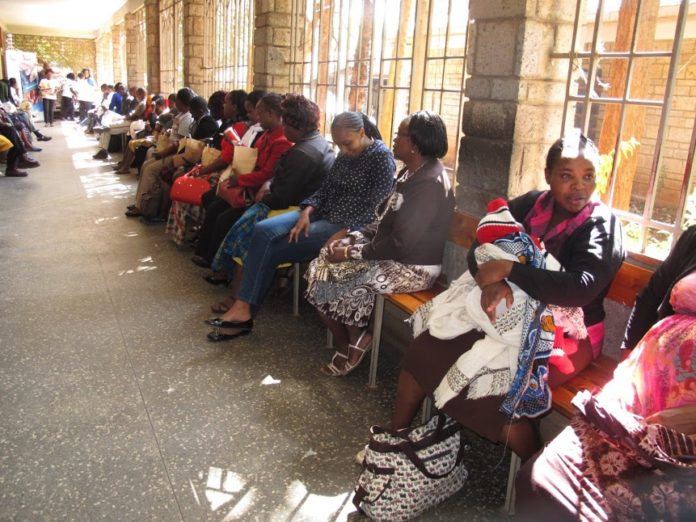|
Getting your Trinity Audio player ready...
|
By Mary Mwendwa
Kapenguria, West Pokot County: Perennial strikes, shortage of personnel and allocation of inadequate funds are some of the toughest wars Kenyan counties are grappling within the health sector.
According to the World Health Organization, African Union countries met and pledged to set a target of allocating at least 15% of their annual budget to improve the health sector. Kenya was one of the signatories. Years later, only one African country reached this target. Twenty-six countries had increased the proportion of government expenditures allocated to health and eleven had reduced it.
These health woes have seen patients not access quality health care hence leading to mortalities that could have been prevented.
The blame is always thrown at the National Treasury for releasing funds late.
But, among these challenges, West Pokot County has stood the test, they are implementing an Act that has seen their health sector transform.
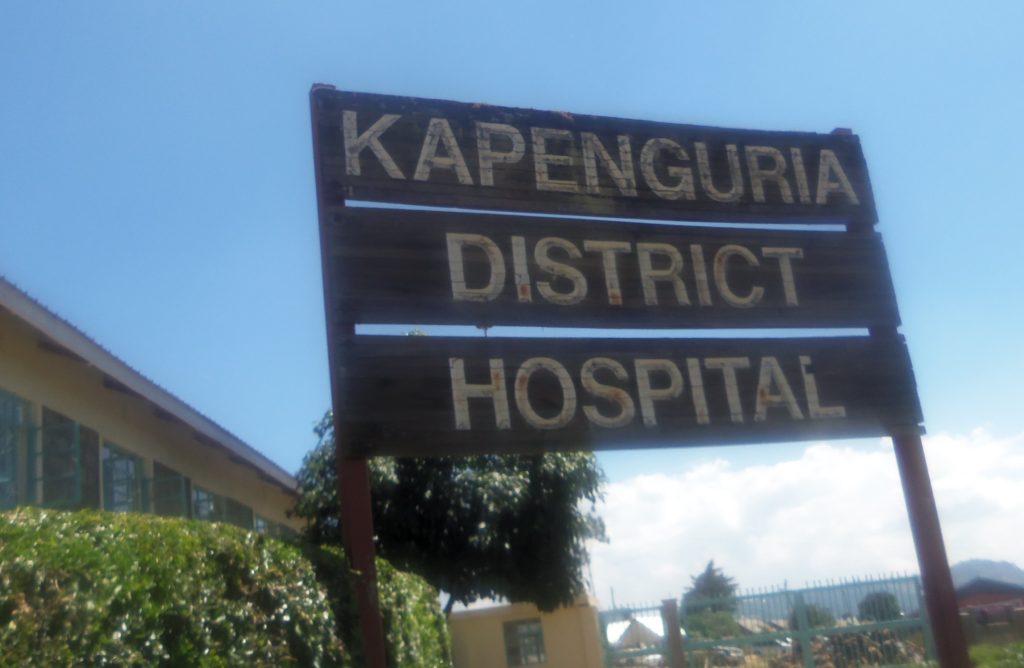
Following assent of the bill by County Governor John Lonyangapuo in 2019, the Facilities Improvement Fund ( FIF) Act came into force in June 2019, it has enabled facilities to collect funds and retaining for the purposes of improving service delivery.
Recurring Climate woes, poor infrastructure, and cattle rustling are some of the challenges that West Pokot County struggles with. In the middle of all these, residents can now breathe a sigh of relief. The health sector is undergoing an amazing transformation that has seen patients leave facilities with a smile.
Kapenguria Level 5 District Hospital is one of the beneficiaries of the FIF. They have immensely improved on service delivery and equipped hospitals with specialized units that never existed before.
The renal unit, New Born Unit, and eye unit can now provide treatment without any problems.
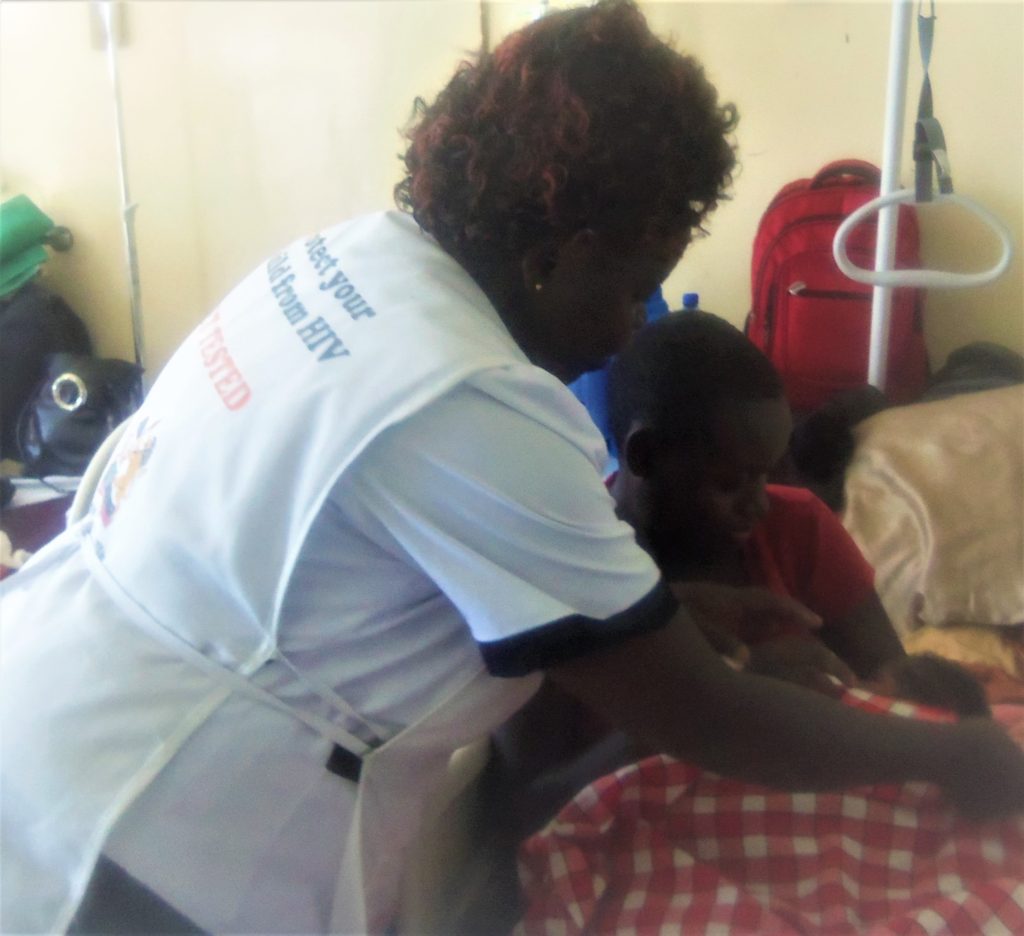
According to Dr. Nobert Abuya, County Director of Health, West Pokot County, FIF has reduced stress in the health sector. “ Bureaucracies of procuring and allocation of funds within health facilities at County level saw the delivery of services to patients hit a snag. There was always a blame game and in the end, patients felt the impact.”
“ Money is collected and retained by facilities. The money is utilized in a structured way whereby the facilities do not use the money directly. Money is collected for a whole quarter, after every quarter the board sits decides on the budget. After budget approval, the funds are disbursed to facilities.”
Abuya notes that the FIF fund is divided into two major portions. 70 percent goes to curative services and 30 percent is set aside for preventive activities. Preventive include; immunizations, maternal health clinics among others.
He further reveals that this Act is implemented by four Facilities in West Pokot. Dispensaries and Health centers are not part of it because of a policy that prohibits them to collect funds. These facilities are; Kapenguria Level 5 District Hospital, Sigor Sub- County Hospital, Chepareria Sub- County Hospital and Kacheliba Sub- County Hospital.
“ These facilities collect money from user fee revenues from users of hospital services; reimbursement from the National Hospital Insurance Fund (NHIF) and donations from non-governmental organizations and other charitable donors.”
Abuya agrees to the fact that resources will never be enough,” We wanted as health sector in West Pokot to deliver our mandate without burdening the County Treasury.”
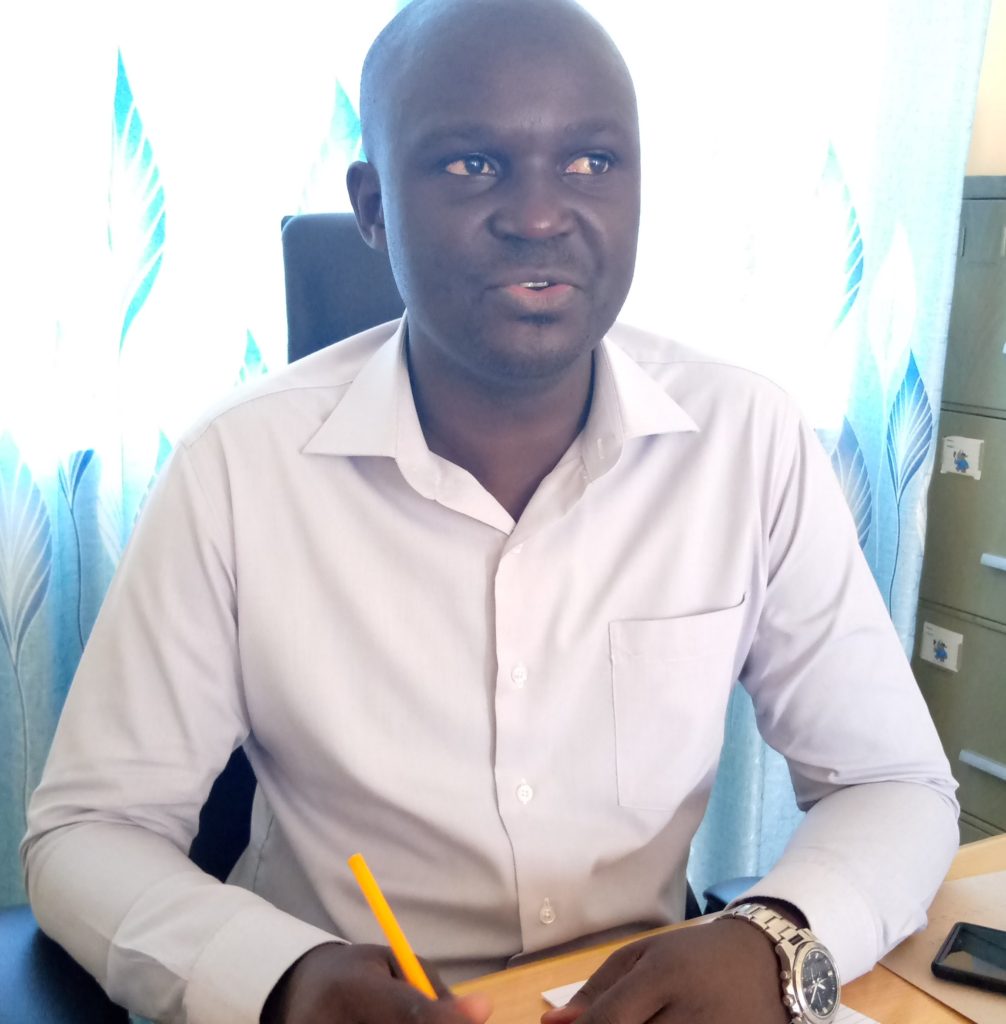
Impact of the FIF Fund
West Pokot County is the first ever to implement this kind of Act in the health sector. It has been in operation since July 2019.
Abuya confirms that towards the end of last year, there was a tug of war between Counties and the National treasury of funds. “ If it were not for this fund we could have closed down our facilities. We were able to deliver health services smoothly without any hitches. We were also able to secure emergency drugs during the festive season, we had no shortage.”
Additionally, Geoffrey Lipale, CEC of Health and Sanitation, West Pokot County feels that the FIF came as a savior to their health sector. “ It was not an easy process and many stakeholders had to be involved including the County Assembly. Without the technical support of Amref Africa, this process would not have achieved the results we are enjoying now as a County.”
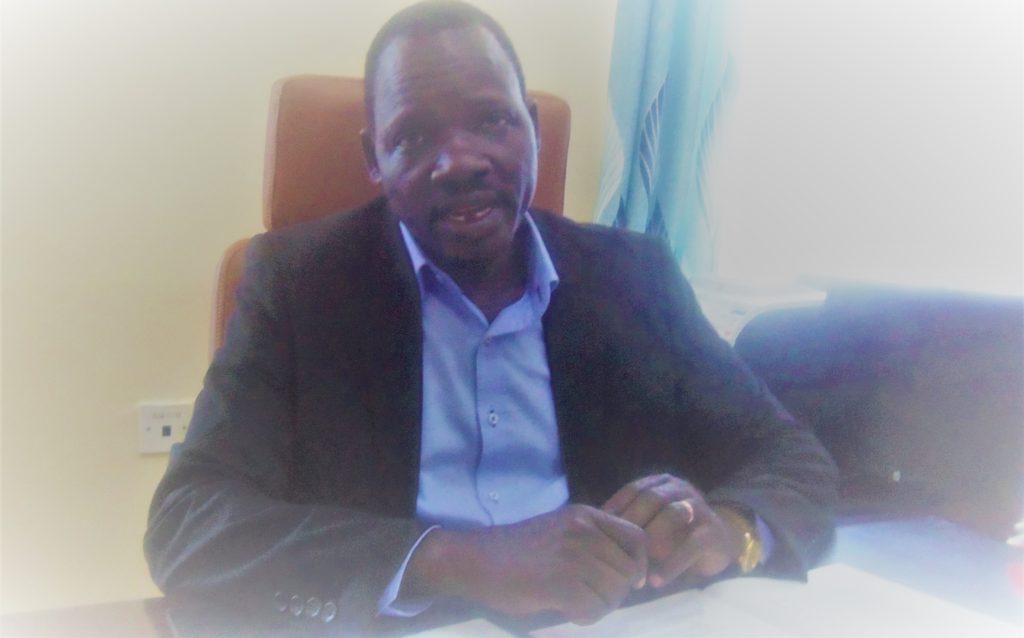
“ While it is evident that the health sector is always underfunded, through the FIF West Pokot County through the board has increased workforce in the facilities, minor supplies that could take at least four months can now be procured by the Medical Superintendent, among many other activities that are needed in day to day operations of a hospital.”
“FIF fund has enabled us to hire health staff through the approval of the board. We now have 13 clinical officers, 17 nurses, 6 pharmaceutical technicians, 7 laboratory technicians, 11 patient porters, and several casual workers. Without this funding,, we would not have been able to hire any of this staff.”
Lipale further says from 2013, preventive and promotive health care services were left out during county budgets. “ There were so many needs that were of emergency in nature that made prevention and promotive health activities look like a luxury yet they are the backbone of health.”
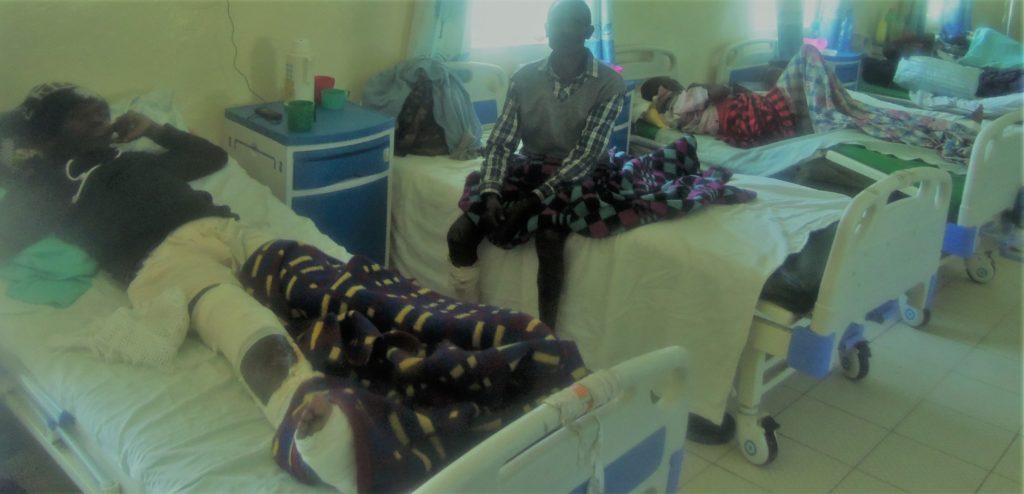
“ With the money collected from the FIF kitty, for the first time ever since devolution emergency cases have reduced drastically. Another advantage is that our public officers are now able to go to communities and carry out outreach programs. Seven million was allocated to preventive services. You could see on a daily basis our public health officers sitting idle, they were demoralized because they could not carry out their mandate. They are busy, their vehicles are fueled and also they get some allowance for their refreshments when they go to the field.”
Lipale points out how mortalities have reduced in the first quarter of FIF implementation. “For the last three months, we have had only 11 mortalities. Before FIF we had 29 mortalities. In Fact, the 11 mortalities are related to motorbike accidents but not lack of quality health care.”
Before devolution hospitals would send quarterly budgets to the Ministry of Health to receive authority for expenditure. Their budget utilized all revenue raised from all sources available to them. Similarly, hospitals operated their own bank accounts where hospital staff and representatives from the district treasury were signatories, allowing them access and use of available funds.
Lipale echoes the same sentiments as Abuya’s, he confirms that the FIF preparation task was a tough one.” This process took a lot of time and resources but it is finally paying off. The FIF is not here to replace county budget allocation to the health sector but to help facilities improve on service delivery.”
He affirms that the suffering most Counties are going through in the health sector, in West Pokot County, FIF is able to fix such problems.
“ Our hospitals are able to procure and respond to urgent needs, the board is there on standby to help in any area. The hospital boards which are gazetted are split into sub-committees which look into finances and quality of services.”
However, Lipale comments that human resource is still a challenge in the County. “We have 153 facilities with 27 health facilities without staff. This is a problem that needs to be addressed by the county. Also, there are other facilities with only one staff, this means that they only operate are 60 percent optimum.”
Following the enactment of the Public Finance Management (PFM) Act 2012 hospitals are required to deposit their revenue to the County Revenue Fund (CRF) account. To incur expenditure, county health facilities are required to request the county government to conduct all their procurement of goods and services and make payments for all expenditures.
This limited autonomy has resulted in delays in the procurement of essential supplies, reduced direct donor support, and reduced funding to county health facilities despite sending revenues to the CRF kitty.
It has also been reported that some hospitals would ignore the law and illegally spend the user fee at the source. FIF journey would not have been possible without the technical support of Amref Africa.
Dr. Elizabeth Wala, Program Director, Health Systems, Amref Africa has been instrumental in Spearheading the development process of the FIF ACT in West Pokot County. She begins by giving the history of how FIF ACT was born.
“ When we got the new constitution in 2010, different legislations came into place. For example the Public Management Finance Act ( PFMA) 2012. This Act directed all revenues to be collected in one fund. This directive made many facilities struggle with implementing basic functions.”
“ As Amref, we believe in solutions in the health sector that will last long. This means that we are keen on how facilities can increase their domestic financing within the health sector.
Wala reflects on how they could go and do Fistula Camps in Kapenguria Hospital.
” We could go and do a camp where we could spend a lot of money. After the camp, we went back and could still find the hospital in the same state as we left. This made us really think and realized the hospital relied on donor funding for this. As you know, donor funding is never sustainable. We then came up with a model where a facility is able to train and retain its own workers, this required investment. We then went ahead and created NHIF funds for surgical procedures. This means that we could pay for one woman for a fistula procedure then the hospital would claim 500 percent from NHIF. This allowed more women to undergo fistula repairs using the same fund.”

Wala says that this was a great idea but the funds would end up in the CRF. “ We thought through this and approached the health committee, speaker and other stakeholders about the county’s health sector having autonomy over its finances. This is how the FIF bill process started.”
“ There was a lot of resistance but with time they saw the benefits that would trickle down to the people of West Pokot. We funded the process of coming up with the bill which finally became an Act in 2019.’’ West Pokot took a very big gamble, from that we got a donor to support Bungoma, Kajiado, Isiolo and Tharaka Nithi to start working on the FIF bill. It is possible to get autonomy back.” Wala signs off.
This story was supported by a grant from Aga Khan University Graduate School of Media and Communications through the Kenya Impact Reporting Fellowships project.

